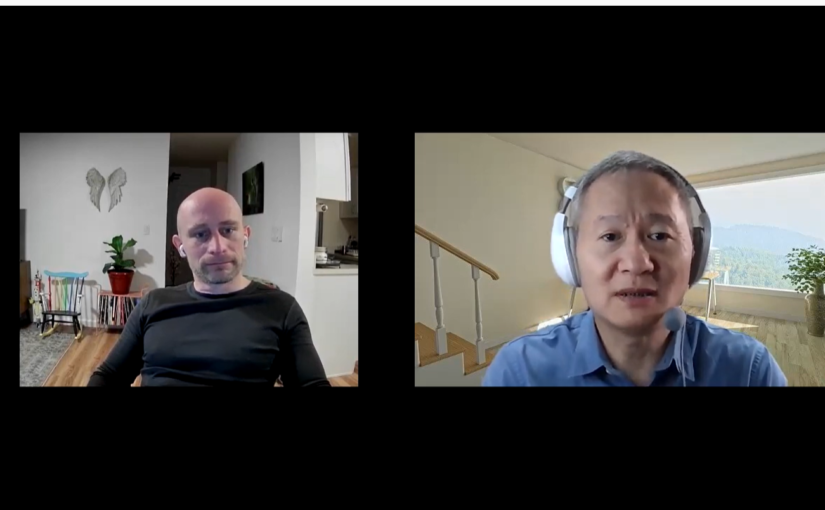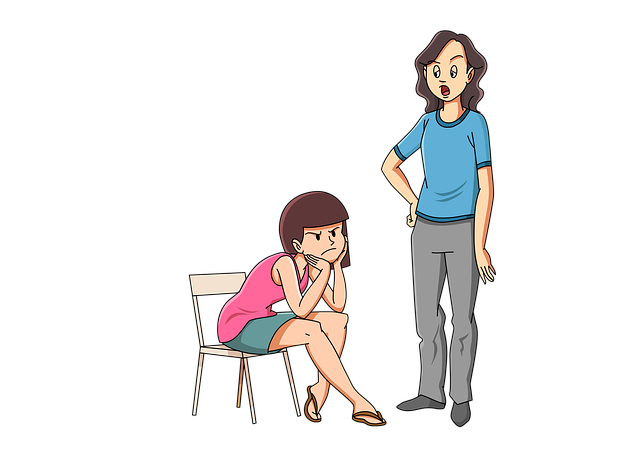Interview with Matthieu Villatte Part 1
Vulnerability: The Price of Admission to a Loving Relationship
by Nathan Chua
If you are one of my readers who is married, let me ask you this question, “Was there some little, small part of you that wondered if marrying this person, a right decision?” If your mind is just like mine, I am sure it did. There’s a funny anecdote about what comes to the mind of a bride as she walks down the aisle to wed her fiance. It’s a play with homonyms, “Aisle, altar, hymn,” turns into, “I’ll alter him!”
If you are one of my readers who was making a big decision of buying a car or a home, was there a little, small part of you that questioned such a decision? If your mind is just like mine, I am sure it did.
If you are one of my readers who is deciding on whether to start a career or go back to school for higher levels of education, is there a little, small part of you that questioned such a choice? If your mind is just like mine, I am sure it did.
As you can see, all of us have one thing in common, that judging, comparing, and problem-solving part of us that is located in between our ears. In some cases, it’s basically telling us that all choices have to be easy and that we can always hold on to both sides of a decision without sacrificing the other.
As we get near Valentine’s day, I want you to start noticing what your mind tells you is not working in your relationship. Are you starting to feel like the moments when you’re feeling resentful in your relationship are increasing while the pleasant ones are coming fewer and farther between? If so, the next step is to notice what you do when these resentments take over your behavior. Do you become aggressive, passive, or passive aggressive when these resentments show up? Are you starting to see your partner as a problem to solve? As someone who needs some psychological fix? As someone who is incapable of doing certain things that you like? On those occasions, what do you notice happens to your interaction with your partner? Are your ways of interacting or communicating helping you get into a more intimate relationship, or is it making your relationship more distant and problematic?
Secondly, remember that that problem-solving part of your mind is there for a good reason. It wants to protect you from harm and help you get through challenges to your personal comfort. The least it wants to happen is to keep you in a vulnerable state. When it’s time to check your finances because you seem to be losing part of your savings, your problem-solving mind will tell you that you need to find out what’s wrong and what’s making your finances vulnerable to the changing conditions in your work or career. If you are being attacked by a dog, your problem-solving mind will help you get out of that vulnerable situation and into safety. If your partner is physically abusive and verbally threatening, then your problem-solving mind can help you find ways to escape such vulnerable situations or find help from the authorities.
When it is our inner experiences that are involved though, our minds still treat our thoughts, emotions, urges, and physical sensations as external threats. It’s part of the work that is done in therapy where people learn to recognize what is a mental or inner threat and what is an actual physical threat. We can escape, fight, or surrender to a physical threat to stop the pain, but we cannot do the same to our inner experiences in order for them to go away, at least without severe consequences to our own vitality. To paraphrase an expert, “Where are you gonna go where your thoughts, feelings, memories, and emotions don’t go?”
Whether you’re celebrating Valentine’s day with a romantic partner, a parent, or some other loved one, the key to a connected and loving relationship is opening up to your more vulnerable feelings. For those of you who are married, remember that your vows meant that you are opening yourself up to vulnerability. No matter how perfect your partner may seem, he or she may suffer a debilitating disease or die anytime. You are taking that step towards the risk of experiencing emotional pain, because love and vulnerability come in a package. Vulnerability means you open up to the pain of possible loss, rejection, mistakes, and many others that come with what is called that state of being human by both you and your loved ones.
Let me end with this quote from Ross White:
“Vulnerability is the price of admission for a vital and meaningful life. If we are to be true to what is important to us, we will inevitably expose ourselves to some risk,” Ross White
Happy Valentine’s Day everyone!
“Confidence” in a Time of Crisis!
What is One Life Only Counseling Services?
Interview Conducted with Dr. Matthieu Villatte!
Perhaps we are making Philippine history here!
Here’s a video of my interview with Matthieu Villatte, PhD who is an Assistant Professor at Bastyr University in Seattle, WA in the United States.
He obtained his doctoral degree in psychology in France, where he was trained as a clinical psychologist. He moved to the US in 2010 to complete a post-doctoral fellowship at the University of Nevada, Reno under the mentorship of Steven Hayes, PhD.
Matthieu Villatte is the author of numerous books and chapters on mindfulness, acceptance, experiential therapies, and contextual behavioral science, such as the first manual published in French on Acceptance and Commitment Therapy and Mastering the Clinical Conversation: Language as Intervention, co-authored by Jennifer Villatte and Steven Hayes.
In the video, we talked about how the principles of behavioral therapy apply to everyday lives of people, the OFW or migrant worker phenomenon prevailing in the Philippines, as well as the pandemic!
Living with Obsessive Thoughts
By Nathan Chua
If you take a closer look at the title of this article, you might see that one word is not capitalized. First of all, it’s what I learned in English composition about how titles should be written. Prepositions are supposed to remain in the lower case when inserted into a title. Secondly and coincidentally, it is probably what would make the approach I use a bit different from what you would mostly encounter in other mainstream therapies. I used the word, “with.” I could have written something like, “Living FREE of your Obsessive Thoughts,” or “Living with LESS Obsessive Thoughts,” or “OVERCOMING Obsessive Thoughts,” or “MANAGING Obsessive Thoughts.” However, that would just take me to the same agenda that is, as I said, mostly what you would expect from the mainstream.
The “”with” part is a big part of what I do in Acceptance and Commitment Therapy or Training (ACT). You might now be worried or your mind is begging you to ask, “Are you into some kind of torture method?…Don’t you have a way of bringing me at least some relief from these obsessive thoughts? Well, of course we all want relief, and that’s pretty much why people come to see a shrink. But it’s in the “how” you get relief that makes it problematic.
The automatic reaction which is logical, reasonable, and sensible, is to come to therapy with the idea that I can somehow magically remove or lessen your obsessive thoughts. As a renowned psychologist would say, and I paraphrase, “You just happen to be doing what’s reasonable, logical, sensible, and by the way, pathological. It’s logical but it’s also nuts!”
Now before you come to me for help, I want you to notice what it is that you have tried to get rid of those thoughts. Have you taken pills? Have you tried to reason out to yourself to relieve yourself of those thoughts? Have you opted out of things you used to do, hoping that if you stop doing them, you wouldn’t be reminded of those thoughts?
So my next question is, “Have those attempts worked?” Have you been able to remove such obsessions that your mind gives you? Well, you could say yes they have, but if you come to me, then ask yourself, “What for?” Most likely, you are reading this or coming to see me because the thoughts have remained. Yes, they did leave you for a while, but they seem to catch up with you sooner or later.
So let’s do one of my favorite ACT exercises to help you live WITH your obsessive thoughts. On a piece of paper, write down all the difficult obsessive thoughts that you have. You may even include some feelings or bodily sensations that come with those thoughts.
Now, do this. Put it in your pocket and answer a few questions.
- Do you have to want to put this paper in your pocket, to put it in your pocket?
- Does it take a lot of effort to put it in your pocket?
- Do you have to change anything that you have written in this piece of paper in order to put it in your pocket?
- Do you have to believe in what you wrote in this piece of paper to put it in your pocket?
- Do you have to pretend to put the paper in your pocket in order to put it in your pocket?
If all your answers here are no, then put it in your pocket. If you answer yes to any, think about why your answer is yes. Are you trying to suppress these thoughts? Are you playing the role of another person you think will represent who you are? Are you trying to argue with such thoughts? How many of these have you already tried before? Have they worked to get you to live the life you want or be the person you want to be?
If you’re one who answered no, then put this in your pocket to remind yourself that you are willing to have this because it is in your own best interest to have all these thoughts in your pocket and still do what’s important to you.
Let me end with a quote from a book that also quotes a regular person who had attended an ACT group. This is one of a number who described what willingness meant to them and to their lives:
“Why willingness? Because it is a normal human process to feel pain, and it is inhumane and unloving to try to hold myself to a different standard,” from an anonymous ACT training participant, taken from a book co-written by Steven C. Hayes.
How to be a guide to your teenager
by Nathan Chua
Generation gap? What happened to my baby? I want the best for her but she seems to not understand! He’s not listening to my words anymore. She seems to spend more time in her room, on her phone than with us parents exactly when there are opportunities to connect and bond. These are just some of the common problems I see from parents who, for the first time, are feeling like they have lost control over their teenage child.
One of my favorite metaphors to share with parents who struggle with their teenagers is that of a mother bird who has a few grown up chicks that are just about ready to fly out on their own. Your teenager wants to take flight. They will have some unsuccessful attempts and this is the time you could be seen by your child either as a teammate or a big obstacle.
The teen years are like the toddler years. They can be really challenging. Remember how much you had to worry about your toddler hurting himself, or losing them in a mall? Your teenager is no longer a child but not yet an adult, just as your toddler is no longer an infant but not yet able to walk without falling badly at times. This can be a painful realization for the parents. If there was separation anxiety for kids, I think this could be the closest thing to it that parents experience.
One of the more frequent complaints I get from parents is that their kids are no longer listening to their admonitions and at times showing no fear of their sterner warnings. In some cases, one parent plays the good cop and the other the bad one. Not only does the conflict happen between the parents and the child, but also between the couple. One resents playing the bad cop and the other resents the other for being the bad cop. It’s quite a common issue for parents with kids, to disagree about how to parent.
But I get it. Parents have all the good intentions to keep their kids from harm and get them to a brighter future. The problem lies in the way they do it. Dr. Darin Cairns has come up with an interesting metaphor on how to help your relationship with your teenager get better. Dr. Cairns asks parents to choose if they wish to act as gatekeepers or guides.
More often, parents perform the role of gatekeepers. They determine for their children what they should or should not do. Of course, there are certainly some things that parents would not want their kids to try, like crossing the street without a care about vehicles coming toward them. Most of the time however, gatekeepers use rules of what to do or not to do for their kids without much of an explanation or giving the child a sense of some autonomy over their actions and choices. Guides, on the other hand, are parents who validate their teens, allow them to make choices, and let them see for themselves the consequences of these choices.
It doesn’t end there though, being a positive guide is also part of this equation. By positive I don’t mean that everything should be happy and joyful. This will give the impression to the child that it is bad to feel sad or anxious or angry or any of the unpleasant emotions. By positive I mean that you should focus on asking your child to do things rather than telling them what not to do. Why? Because through this your child will not feel criticized and will take your guidance as an opportunity to learn new things and give them a sense of agency.
Well, I am getting tired as I write this. Suffice it to say that I completely empathize with parents of teenagers. It is quite the chore but nonetheless it can be rewarding to be a guide and a friend to your teenager rather than a gatekeeper who is constantly on the lookout for what disaster your kid is up to now. Haha!
Special Valentine’s Offer!
Get 20% off for first time bookings. Special discounts for returning and online clients! Call or text us now at 0917 886 LIFE (5433)! This will only apply to bookings made from January 17, 2022 to February 15, 2022!
How to start Marriage/Relationship Number 2
by Nathan Chua
New year, new dear? Yes, you can, as a couple, start your relationship all over again! You might be wondering how in the world can I, as a counselor, help you change your partner? Oh he’s been like that for a good part of two decades now! What gives me the audacity to claim I can change your partner? Well, there is a way my friends! And the wonderful thing about it, is it’s up to you, not your partner. Let me tell you how to curtail your long wait.
I don’t want to be the bearer of bad news, but paradoxically, the best way to change your partner is to accept him! Of course I’d be lying if I told you that this was guaranteed. But chances are, if you’re reading this, you’ve already tried many, many ways to change your partner, and they all haven’t worked. In fact, the more you try to change your partner, the more rigid he becomes. Most of the time, you find yourselves stuck in a verbal skirmish that could put to shame some lawyers you know, in terms of the tenacity and adroit argumentation that both you and your partner display.
Let me explain what I mean with an example. If let’s say your partner is not as neat and tidy as you are. You are now exhausted with all the cleaning up to do and the reminders you have to make to help your partner remember to do her side of the bargain. You then come to therapy and learn that these things are better off accepted and can take a long time to change, especially with the way you have been heretofore dealing with the problem. Based on this new understanding or awareness that what you have been doing is part of what keeps you stuck, you start laying off on the reminders and become more accepting of the fact that your partner will be hard-pressed to turn into the neat and tidy person that you want. There is a likelihood that your partner will notice the change in your attitude. You no longer holler and complain as much as you used to. She may notice that and begin to see how hard it is for you to be left alone taking care of house chores. Pretty soon you see her performing some of the chores to please you, precisely because you have accepted her with these differences she brings into the relationship.
Another tip is also to be more noticing of your partner’s efforts to change. If you notice that she has started doing some unexpected cleaning, be mindful enough to show her your appreciation. Give her a smile or a hug or say some encouraging words of appreciation. You’d know more than I do what makes your partner happy. Show her that you’re not missing the forest for the tree…maybe for the first time in a long long while.
Now, do you notice also that in both of these pieces of advice that I just enumerated, who is in control? Is it your partner or you? It is you. You have control over your actions of whether to accept your partner’s differences in the way she keeps her place tidy. You also have control over your behaviors that involve encouraging her by your appreciation.
So creating marriage number two is not about changing your partner, it’s more about changing you! And the most accessible parts of you that can be changed, are those that involve your choices to act. You may feel frustrated and uncomfortable, but in the end you have the option to keep whining and complaining and criticizing your partner, or start the process by coming to accept that certain things are hard to change.
As a summary of what you can keep in mind to help you change the way you have been approaching your relationship or marital concerns, here are some immortal words from Albert Einstein, “We cannot solve problems with the same thinking that we used to create them.”






